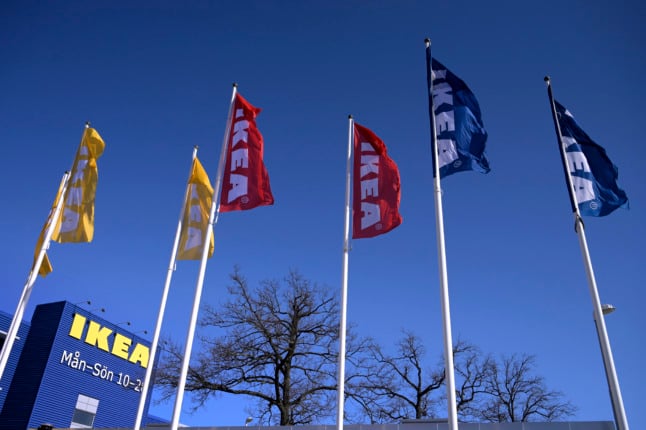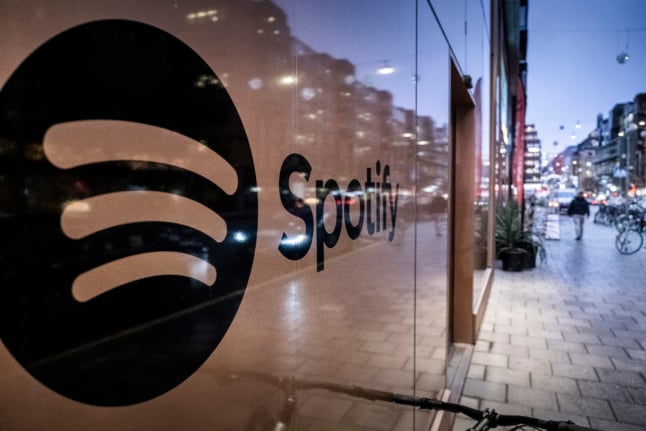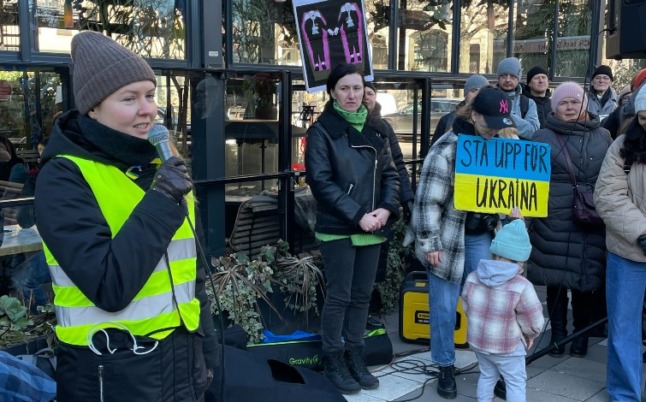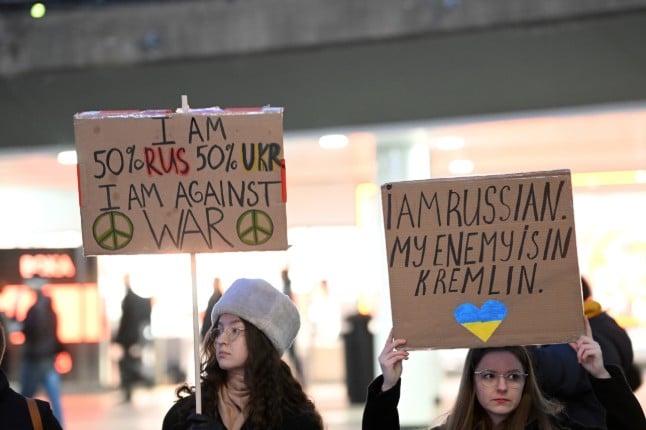Welcome to DU!
The truly grassroots left-of-center political community where regular people, not algorithms, drive the discussions and set the standards.
Join the community:
Create a free account
Support DU (and get rid of ads!):
Become a Star Member
Latest Breaking News
Editorials & Other Articles
General Discussion
The DU Lounge
All Forums
Issue Forums
Culture Forums
Alliance Forums
Region Forums
Support Forums
Help & Search
General Discussion
Related: Editorials & Other Articles, Issue Forums, Alliance Forums, Region ForumsHow Sweden has responded to Putin's war in Ukraine so far
Since the Russian invasion of Ukraine on February 24th, Swedish businesses and cities, alongside the Swedish government, have responded with a range of sanctions on Russia. See the key points here.
Businesses:
February 28th: Scania vehicle manufacturers announce that they paused delivery of vehicles and reserve parts to Russia “last week”
February 28th: Volvo truck makers (a separate entity from Volvo cars) halt production at its Russian factory and stop sales in Russia
February 28th: Volvo cars stop all sales of new cars in Russia
February 28th: Ericsson suspend deliveries to Russia
March 2nd: H&M announce that it is halting sales in Russia
March 2nd: Spotify announce that it is closing its Russian office and removing Russian state-sponsored content from its platform
March 3rd: IKEA suspend activities in Russia and Belarus
February 28th: Volvo truck makers (a separate entity from Volvo cars) halt production at its Russian factory and stop sales in Russia
February 28th: Volvo cars stop all sales of new cars in Russia
February 28th: Ericsson suspend deliveries to Russia
March 2nd: H&M announce that it is halting sales in Russia
March 2nd: Spotify announce that it is closing its Russian office and removing Russian state-sponsored content from its platform
March 3rd: IKEA suspend activities in Russia and Belarus

Cities:
February 27th: Kalmar municipality, southern Sweden, pauses partnership with twin city Kaliningrad, Russian exclave
February 28th: Borgholm municipality on the Swedish island of Öland pauses twin city agreement with Zelenogradsk, also situated in Kaliningrad
March 1st: Karlskoga municipality, central Sweden, end twin city agreement with the Russian city of Ivangorod
March 3rd: city of Malmö ends anti-HIV/AIDS collaboration with Kaliningrad
A number of other municipalities such as Lycksele in northern Sweden and Norrtälje north of Stockholm have also ended their collaborations with Russian cities.
February 28th: Borgholm municipality on the Swedish island of Öland pauses twin city agreement with Zelenogradsk, also situated in Kaliningrad
March 1st: Karlskoga municipality, central Sweden, end twin city agreement with the Russian city of Ivangorod
March 3rd: city of Malmö ends anti-HIV/AIDS collaboration with Kaliningrad
A number of other municipalities such as Lycksele in northern Sweden and Norrtälje north of Stockholm have also ended their collaborations with Russian cities.
Universities:
In a press conference on March 2nd held alongside the Association of Swedish Higher Education Institutions (SUHF) and the Swedish Research Council, Education Minister Anna Ekström called for Swedish universities and higher education institutions to break all contact and collaboration with state-run institutions in Russia and Belarus. “We should not have research and education collaborations which support the Russian administration,” Ekström said. She did, however, underline that individual Russian researchers should not be equated with the Russian state. “In many education and research collaborations, there are individual contacts between researchers in Sweden, Russia and Belarus. Many in Russia and Belarus openly criticise the Russian administration’s actions, putting their lives in danger. Therefore, it is important that Russian and Belarusian researchers are not automatically equated with state institutions,” she said.
Government support:
March 1st: The government agree to send 100 million kronor to Ukraine
February 28th: The government agree to send military supplies to Ukraine, including anti-tank weapons and protective supplies
March 1st: The government agree to send a further 500 million kronor to Ukraine
March 2nd: The government agree to send medical supplies to Ukraine including face masks, ventilators, hand sanitiser and IV drips
February 28th: The government agree to send military supplies to Ukraine, including anti-tank weapons and protective supplies
March 1st: The government agree to send a further 500 million kronor to Ukraine
March 2nd: The government agree to send medical supplies to Ukraine including face masks, ventilators, hand sanitiser and IV drips
Solidarity brings hope: why Swedish support matters for us Ukrainians
Karina Shyrokykh, spokesperson for the Nordic Ukraine forum, describes the surreal seven days since Russia invaded Ukraine. The solidarity people in Sweden and elsewhere have shown is a sign, she believes, of brighter times ahead.
https://www.thelocal.se/20220302/why-every-bit-of-support-we-can-get-from-sweden-matters-for-us-ukrainians/

Karina Shyrokykh, spokesperson for the Nordic Ukraine forum, speaks at a demonstration in Stockholm on Tuesday.
When I went to bed on February 23, I was happy to have managed to submit a scientific paper for peer review before midnight. As I drifted off, I worried I could have formulated a few of the sentences differently. Little did I know that six hours later, I would wake to learn that Russia had launched a full-scale war on Ukraine.
I could not believe what I was reading and seeing on the news. Everything seemed so surreal. My immediate thoughts were with my family back in Ukraine. I felt disoriented and terrified. And it was not only me, every Ukrainian that I have spoken to said they woke that morning with the same feelings.
Within two hours, the Nordic Ukraine Forum, an NGO created to develop Ukraine-Sweden relations, arranged a protest next to the Russian Embassy in Sweden. It was painful to witness: people were not hiding their emotions, many cried. They were unsure whether their families were safe and felt desperate at not being able to help their loved ones.
But also, everyone was terrified by the fact that Ukraine’s very existence was being fundamentally threatened. You could also tell that the journalists who came to report from the protest were emotional, with some barely holding back tears. It was a very gloomy morning.
snip

As well as spokesperson of the Nordic Ukraine Forum, Karina Shyrokykh is a Senior Lecturer in International Relations at Stockholm University.